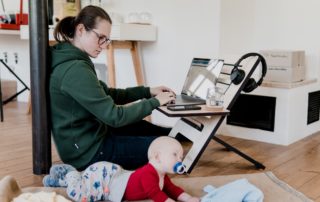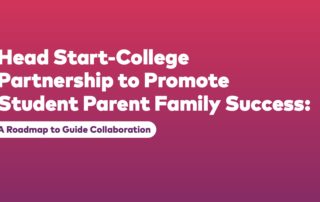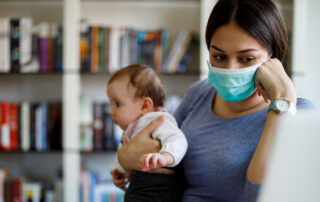Evaluating the Role of Campus Child Care in Student Parent Success
To ensure student parents are wholly supported in their educational pathways, research is needed to understand the connection between quality, affordable child care and student parents’ academic outcomes. Yet several challenges persist that make rigorous study of this connection difficult. Drawing on interviews with campus child care directors and a review of data and relevant literature, this brief presents a snapshot of the availability and importance of campus child care services for student parent success. It concludes with recommendations to improve conditions for rigorous research on the role of campus child care in the outcomes of college students with children.










